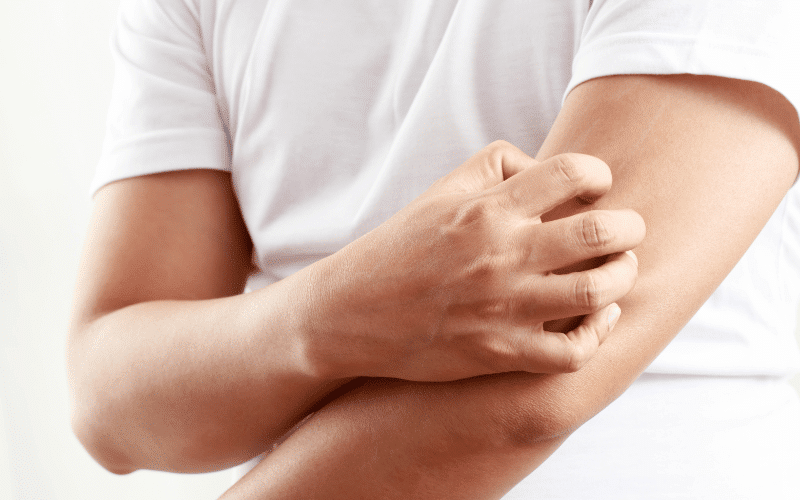Introduction: Eczema Uncovered
Eczema, a widespread skin condition, affects millions of people across the globe. Identifying this condition can be tricky, particularly for those who are not well-versed in its various signs and symptoms. This article aims to provide you with the information you need to recognize and understand the 15 most common signs and symptoms of eczema. By becoming aware of these indicators, you can take the necessary steps to manage the condition and enhance your quality of life.
To start, let’s establish a basic understanding of eczema. The term “eczema” refers to a group of skin conditions that cause redness, inflammation, and itchiness. It can occur in people of all ages and may be triggered by various factors, including allergens, irritants, and stress. The most common type of eczema is known as atopic dermatitis, which is often linked to a genetic predisposition and a malfunctioning immune system.
In this article, we will explore the 15 most common signs and symptoms of eczema, helping you to identify the condition and seek appropriate treatment. We will also discuss some frequently asked questions related to eczema, providing you with a well-rounded understanding of this prevalent skin issue.
Symptom 1. Itchy Skin: The Primary Symptom

Itchy skin is the primary symptom of eczema and often the first sign that something is amiss. This itching sensation can range from mild to severe, and in some cases, it may become unbearable, causing a strong urge to scratch.
The incessant scratching can lead to skin damage and worsen the condition. Therefore, it is essential to identify this symptom and seek appropriate treatment to alleviate the discomfort. Over-the-counter creams and ointments may provide temporary relief, but it is crucial to consult a dermatologist for a comprehensive evaluation and personalized treatment plan.
Itching can also disrupt sleep and daily activities, which further emphasizes the importance of managing this symptom. To reduce itchiness, you can try several strategies, such as keeping your skin moisturized, avoiding triggers that exacerbate eczema, and using fragrance-free skincare products. Additionally, wearing soft, breathable fabrics can minimize skin irritation and help reduce itching.
In some cases, the itching can be a sign of a secondary infection due to scratching the affected area. If you notice pus, increased redness, or worsening of your symptoms, it’s essential to consult a healthcare professional immediately. They may prescribe antibiotics or other treatments to address the infection and help manage the eczema symptoms effectively. (1)